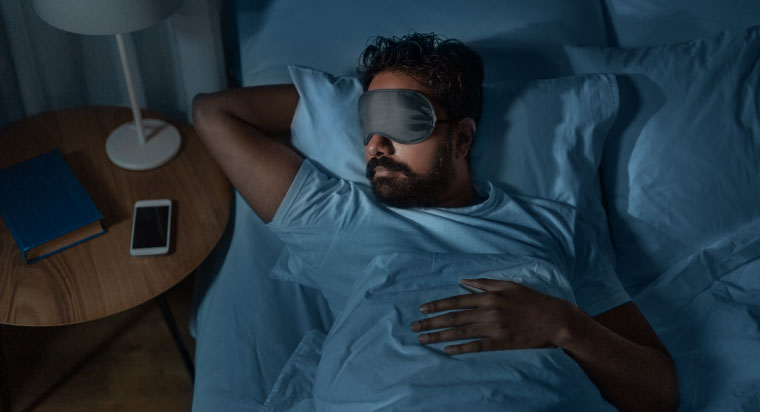Getting a good night’s sleep is essential for your overall health and well-being. However, many individuals struggle with insomnia, a sleep disorder characterized by difficulty falling asleep, staying asleep, or experiencing non-restorative sleep. In this article, we will explore evidence-based techniques for better sleep that can help improve sleep quality and overcome insomnia.
What is Insomnia?
Insomnia can summarized as an inability to get a good amount of sleep. Insomnia can be classified into different types, including acute and chronic insomnia. Acute insomnia is often caused by temporary factors such as stress, jet lag, or medication, while chronic insomnia lasts for a longer duration, typically more than three months. Understanding the underlying causes and risk factors for insomnia is crucial in effectively managing the condition.
How can good sleep hygiene improve sleep quality?
Sleep hygiene refers to a set of practices and habits that promote healthy sleep. Incorporating good sleep hygiene practices can significantly improve sleep quality. Some important aspects of sleep hygiene include:
- Consistent Sleep Schedule
Establishing regular sleep and wake times helps regulate the body’s internal clock and promotes better sleep.
- Bedtime Routine
Engaging in a relaxing wind-down routine before bed, such as reading a book or taking a warm bath, signals the body that it’s time to sleep.
- Create a Sleep-Friendly Environment
Ensure your sleep environment is comfortable, quiet, and dark. Adjust the temperature and use earplugs or a white noise machine if necessary.
Evidence-Based Techniques for Better Sleep
There are certain techniques that can enhance sleep quality. Here are some of them.
- Cognitive Behavioral Therapy for Insomnia (CBT-I):
This is one of the most helpful techniques for better sleep and can be practiced in various ways.
- Sleep Restriction Therapy
This technique involves limiting the time spent in bed to match the actual amount of sleep obtained. It helps consolidate sleep and reduce time spent awake in bed.
- Stimulus Control Therapy
By associating the bed and bedroom with sleep and relaxation only, stimulus control therapy helps break the cycle of anxiety and negative associations with bedtime.
- Relaxation Techniques
Deep breathing exercises, progressive muscle relaxation, and guided imagery can help calm the mind and prepare the body for sleep.
- Cognitive Restructuring
Challenging and changing negative thoughts and beliefs about sleep can alleviate anxiety and promote better sleep.
- Pharmacological Treatments
While medication should be used as a last resort or under the guidance of a healthcare professional, certain sleep medications can provide temporary relief from insomnia. However, it is important to be aware of their benefits and limitations, as well as potential side effects. Consult a medical professional to guide you on the right approach and best sleep medicines if necessary.
- Non-Pharmacological Interventions
Apart from medicines and behavioral therapy, there are other natural remedies for improving sleep quality.
- Light Therapy
Exposing oneself to bright light in the morning can help regulate the body’s internal clock and improve sleep-wake patterns, particularly for individuals with seasonal affective disorder or circadian rhythm disorders.
- Mindfulness and Meditation
Practicing mindfulness and meditation techniques, such as mindfulness-based stress reduction (MBSR) or mindfulness-based cognitive therapy (MBCT), can reduce stress and promote relaxation, leading to better sleep.
- Exercise and Physical Activity
Engaging in regular physical activity, such as aerobic exercises or yoga, can help reduce anxiety, improve mood, and enhance sleep quality. However, it is advisable to avoid exercising close to bedtime, as it may increase alertness.
- Herbal Remedies and Supplements
Some herbal remedies and supplements, such as valerian root, melatonin, or chamomile tea, have been traditionally used to promote relaxation and improve sleep quality. However, it is important to consult with a healthcare professional before incorporating them into your routine.
Managing Anxiety and Stress for Better Sleep
Anxiety and stress can significantly impact sleep quality and contribute to insomnia. To manage anxiety and stress effectively, consider the following techniques for better sleep:
- Relaxation Exercises: Deep breathing exercises, progressive muscle relaxation, and guided imagery can help relax the body and calm the mind before bedtime, reducing anxiety and promoting better sleep.
- Breathing Techniques: Practicing diaphragmatic breathing or other relaxation breathing exercises can activate the body’s relaxation response and help reduce anxiety and stress levels.
- Journaling and Expressing Emotions: Writing down your thoughts and feelings in a journal can serve as a therapeutic outlet, allowing you to release stress and worries before bed. It can help clear the mind and promote a sense of calmness.
- Seeking Support from a Therapist or Support Group: If anxiety or stress is significantly impacting your sleep and overall well-being, consider seeking professional help from a therapist or joining a support group. They can provide valuable guidance, coping strategies, and support tailored to your specific needs.
Conclusion
Sleep is a fundamental aspect of your overall health and well-being, and insomnia can have a significant impact on your daily life. By implementing evidence-based techniques and adopting good sleep hygiene practices, you can improve sleep quality and overcome insomnia. It’s important to consult with healthcare professionals or sleep specialists for personalized guidance and support.
If you are struggling with chronic insomnia or have persistent difficulties with sleep, we encourage you to reach out to our pulmonary clinic for comprehensive evaluation and treatment. Don’t let insomnia disrupt your life any longer – take control of your sleep and prioritize your well-being!



 Translate
Translate

